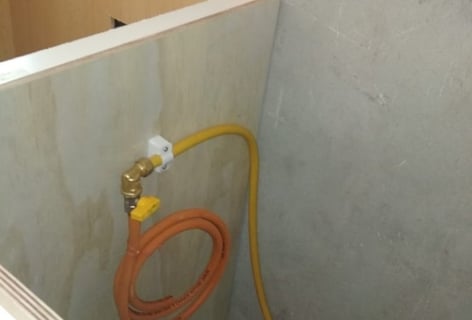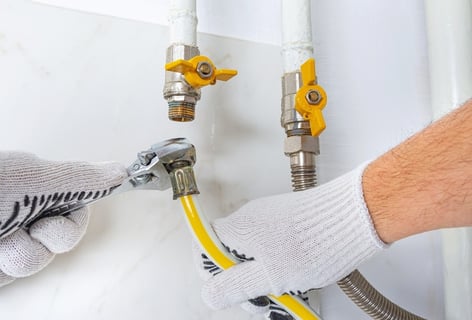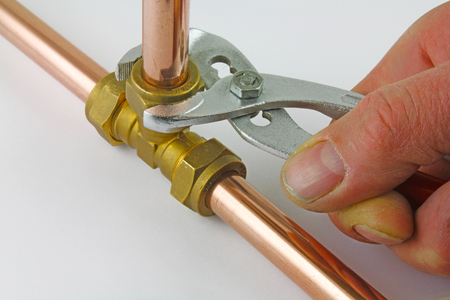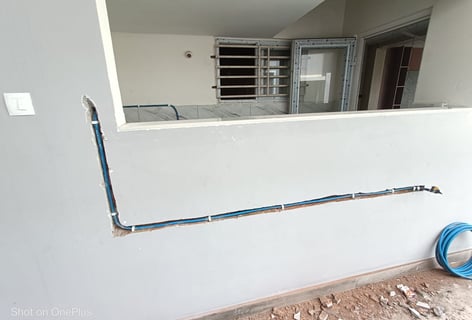What are the signs of a gas leak, and how should homeowners respond
A gas leak is a serious safety hazard that requires immediate attention. Common signs include a distinct rotten egg smell, hissing sounds near gas lines, dead or discolored vegetation around the pipeline, and unusually high gas bills. If you suspect a gas leak, evacuate the area immediately and avoid using electrical devices or open flames.
8/12/20246 min read








Identifying Signs and Protecting Your Home
Immediate Actions to Protect Your Home from Gas Leaks
Gas leaks are a serious hazard that can lead to explosions, fires, and health issues due to the toxic nature of the gases involved. Whether you are using natural gas, propane, or another form of gas, knowing how to respond quickly and effectively can save lives and prevent significant damage to your property. Below is an in-depth guide on what to do if you suspect a gas leak in your home.
1. Recognize the Signs of a Gas Leak
Understanding the signs of a gas leak is the first step in responding effectively. Gas leaks can often be detected by:
Smell: Many household gases, like natural gas, are odorized with a chemical called mercaptan, which smells like rotten eggs. If you detect this distinctive odor, it’s likely you have a gas leak.
Sound: A hissing or whistling sound near gas appliances, pipelines, or meters could indicate a gas leak.
Visual Indicators: Look for signs such as dead or dying vegetation near gas lines, unusual bubbles in standing water, or dust blowing from the ground. Inside the home, check for a white mist or fog around gas pipes.
Physical Symptoms: Exposure to leaking gas can cause dizziness, nausea, fatigue, headaches, and difficulty breathing. If you or anyone in your household experiences these symptoms, evacuate immediately.
2. Evacuate the Area Immediately
Leave the Premises: As soon as you suspect a gas leak, evacuate everyone from the home, including pets. Do not attempt to locate the source of the leak yourself.
Avoid Triggers: Do not use any electrical devices, including light switches, phones, or anything that could create a spark. Even the smallest spark can ignite the gas.
Don’t Use Open Flames: Avoid lighting matches, candles, or using lighters. If you have a gas stove or fireplace, ensure they are turned off before leaving.
Cover Your Mouth and Nose: If you are experiencing symptoms from gas exposure, cover your mouth and nose with a cloth as you exit the building.
3. Shut Off the Gas Supply
Locate the Gas Meter: Familiarize yourself with the location of your gas meter before an emergency occurs. It is usually found outside the home, near where the gas line enters the building.
Turn Off the Gas Valve: The main gas shutoff valve is typically located near the gas meter. Use a wrench to turn the valve one-quarter turn, so it is perpendicular to the pipe. This stops the flow of gas to your home.
Know How to Turn Off Appliances: Some appliances may have individual shutoff valves. If it’s safe, turn these off to stop gas from leaking into the room.
4. Call Emergency Services
Contact Your Gas Company: Once you are at a safe distance from the house, call your gas company’s emergency line. They can send a technician to assess the situation and ensure your home is safe.
Call 911: If you believe there is an immediate danger of explosion or if anyone is feeling unwell, call 911 right away. Emergency responders can handle the situation and ensure everyone’s safety.
Don’t Assume the Leak Is Minor: Even if you think the leak is small or contained, always contact professionals. Gas leaks can escalate quickly, and it’s better to be cautious.
5. Ventilate the Area (If Safe to Do So)
Open Windows and Doors: If you detect a gas leak and it’s safe to do so before evacuating, open all windows and doors to allow the gas to disperse. This can help reduce the concentration of gas in the air.
Do Not Turn on Ventilation Systems: Avoid turning on exhaust fans, HVAC systems, or any mechanical ventilation as they could cause a spark or spread the gas throughout the home.
Leave the House: Once you’ve ventilated the area, exit the house immediately and wait for professionals to assess the situation.
6. Avoid Re-entering the Home
Wait for Professional Clearance: After evacuating, do not return to your home until it has been inspected and cleared by the gas company or emergency services. They will check for residual gas and ensure the source of the leak is repaired.
Follow Instructions: Listen carefully to the instructions given by professionals. They may advise you to stay out of the home for a certain period or provide specific guidelines for when and how it is safe to return.
Monitor for Lingering Gas Smell: Once you return, continue to monitor for any signs of gas. If you detect the smell again, evacuate and call for assistance immediately.
7. Seek Medical Attention
Check for Symptoms: If anyone in the household was exposed to the gas, especially for a prolonged period, seek medical attention immediately. Symptoms of gas poisoning include headaches, dizziness, nausea, shortness of breath, and confusion.
Inform the Medical Team: Let the medical team know about the gas exposure so they can provide appropriate treatment. Carbon monoxide poisoning, in particular, can be deadly if not treated quickly.
8. Prevent Future Gas Leaks
Regular Inspections: Schedule regular inspections of your gas lines and appliances by a certified professional. They can identify and fix potential problems before they become dangerous. For ongoing safety, consider engaging services for gas pipeline service in Hyderabad.
Install Gas Detectors: Consider installing gas detectors in your home, particularly in areas where gas appliances are used. These devices can alert you to a gas leak before it becomes hazardous.
Educate Your Family: Ensure everyone in your household knows the signs of a gas leak and the steps to take in an emergency. Conduct regular drills to practice evacuating and shutting off the gas.
Maintain Appliances: Keep gas appliances in good working order. Follow the manufacturer’s instructions for maintenance and have them serviced regularly by professionals. Regular gas pipeline service in Hyderabad can help prevent leaks and ensure your system remains safe.
Be Cautious with DIY Repairs: Never attempt to repair or install gas lines or appliances yourself unless you are a qualified professional. Improper installation or repairs can lead to leaks and other hazards. For reliable and safe solutions, consider professional services for gas pipeline service in Hyderabad.
9. Understand the Risks of Gas Leaks
Explosion Hazard: Gas leaks can lead to explosions if the gas accumulates in a confined space and is ignited by a spark or flame.
Fire Risk: Escaping gas can also lead to fires, particularly if it comes into contact with a flame or high heat.
Health Effects: Inhaling gas can cause serious health problems, including carbon monoxide poisoning, which can be fatal. Even non-toxic gases can displace oxygen in the air, leading to suffocation.
Environmental Impact: Some gases, like methane, are potent greenhouse gases. Leaks contribute to environmental damage and should be addressed promptly.
10. Emergency Preparedness
Create an Emergency Plan: Develop a plan for your family in case of a gas leak. This should include evacuation routes, emergency contact numbers, and meeting points.
Keep Emergency Supplies: Have a basic emergency kit ready that includes a wrench for turning off the gas, flashlights, batteries, and first-aid supplies.
Stay Informed: Sign up for alerts from your local gas company or emergency services, so you are notified of any issues in your area that could affect your home’s safety. Additionally, consider consulting with experts for gas pipeline service in Hyderabad to stay ahead of potential issues.
By following these guidelines and utilizing professional gas pipeline service in Hyderabad, you can ensure your home is safer and better prepared to handle gas-related emergencies.
Conclusion
Gas leaks are a serious threat, but with prompt and proper action, you can protect your home and loved ones. By recognizing the signs of a leak, evacuating immediately, shutting off the gas, and calling for help, you can prevent a dangerous situation from escalating. Additionally, taking proactive steps to maintain your gas system and educate your household will help reduce the risk of future leaks. Always prioritize safety and never hesitate to contact professionals if you suspect a gas leak.
Our Locations In Hyderabad & Secunderabad
Gas Pipeline Service In Hyderabad & Secunderabad , Gas Pipeline Service In Pragathi Nagar , Gas Pipeline Service In Bachupally , Gas Pipeline service In KPHB , Gas Pipeline service In Panjagutta , Gas Pipeline service In Ameerpet , Gas Pipeline service In Sai Nagar , Gas Pipeline service In Moosapet , Gas Pipeline service In Kukatpally , Gas Pipeline service In Nizampet , Gas Pipeline service In Miyapur , Gas Pipeline service In Lingampally , Gas Pipeline service In Patancheru , Gas Pipeline service In Secunderabad , Gas Pipeline service In Banjarahills , Gas Pipeline service In Jubilee Hills , Gas Pipeline service In Madhapur , Gas Pipeline service In Hitech City , Gas Pipeline service In Gachibowli , Gas Pipeline service In Nallagandla , Gas Pipeline service In Tellapur , Gas Pipeline service In Manikonda , Gas Pipeline service In Chintal , Gas Pipeline service In Jeedimetla , Gas Pipeline service In Alwal , Gas Pipeline service In Malkajgiri, Gas Pipeline service In Sainikpuri , Gas Pipeline service In Ecil, Gas Pipeline service In Tarnaka , Gas Pipeline service In Uppal , Gas Pipeline service In LB Nagar , Gas Pipeline service In Dilsukhnagar .
Contact Us
nanogaspipeline@gmail.com
Copyright © 2025 Nano Gas Pipeline Service. All rights reserved.
Gas Pipeline Installation Service By Nano Gas Pipeline
At Nano Gas Pipeline Service, Your safety and satisfaction are our top priorities. By selecting Nano Gas Pipeline Service, you’re aligning with a team committed to improving your home’s safety. Contact us today for our domestic Nano gas pipeline service in Hyderabad.
